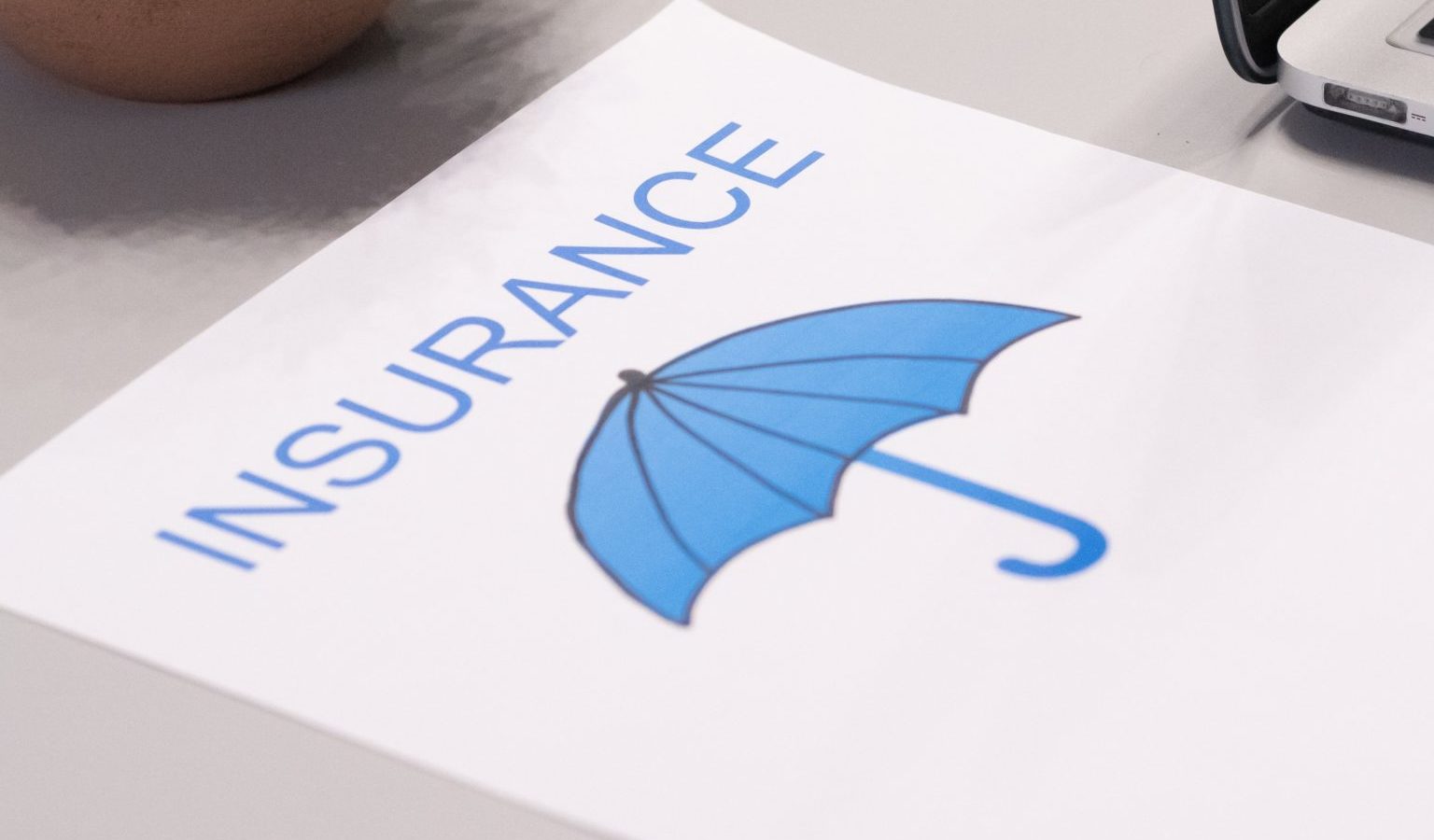
Let’s discuss business insurance, types of coverage, and why it is very important. Is your business adequately protected against unexpected disasters, lawsuits, or unforeseen setbacks? In the ever-evolving world of commerce, safeguarding your company is not just a wise choice; it’s a critical necessity. Welcome to USAInsuranceTalk.com’s comprehensive guide on Business Insurance – your one-stop resource for understanding, selecting, and optimizing the insurance coverage that’s right for your enterprise.
In today’s fast-paced business landscape, no matter the size or industry, every organization faces an array of potential risks and liabilities. From property damage and employee injuries to lawsuits and cyberattacks, the threats are diverse and ever-present. That’s where business insurance comes into play, serving as a financial safety net that can mean the difference between survival and downfall.
This blog post aims to demystify the world of business insurance, providing you with the knowledge and insights needed to make informed decisions about protecting your company’s future. We’ll explore various types of business insurance, delve into the factors that influence your coverage choices, and offer practical tips for managing costs. Whether you’re a seasoned entrepreneur or just starting your business journey, this guide is your roadmap to peace of mind and financial security.
So, fasten your seatbelts! Herein USAInsuranceTalk.com, let’s embark on a journey through the intricate world of business insurance. Get ready to equip your business with the armor it needs to thrive and prosper, even in the face of unforeseen challenges. Let’s begin.
Understanding Business Insurance

At its core, business insurance is a shield that protects your company from the unpredictable and often costly uncertainties of the business world. It’s a safeguard against the unforeseen mishaps that can disrupt operations, drain finances, or even threaten the very existence of your enterprise. Understanding the fundamentals of business insurance is the first step towards making informed choices for your organization’s security.
Why Business Insurance Matters
Imagine this scenario: Your storefront is damaged in a fire, forcing your business to shut down temporarily. Or perhaps, a customer files a lawsuit against your company due to a product defect. Without the right insurance coverage, these situations could spell financial ruin.
Business insurance matters for several key reasons:
Financial Protection
It provides a safety net, covering the costs associated with property damage, legal liabilities, employee injuries, and more. This financial protection ensures that your business can weather the storm and continue to operate.
Legal Compliance
In many jurisdictions, certain types of business insurance, such as workers’ compensation or commercial auto insurance, are legally required. Failing to comply with these mandates can lead to fines, penalties, or even business closure.
Peace of Mind
Knowing that your business is adequately insured can bring peace of mind. You can focus on growing your company without the constant worry of unforeseen events derailing your progress.
Customer Confidence
Some clients or partners may require proof of insurance before doing business with your company. Having appropriate coverage can help instill confidence and trust in your brand.
The Risks and Liabilities Businesses Face
Every business, regardless of its size or industry, faces a myriad of risks and potential liabilities. Here are some common challenges that business owners encounter:
Property Damage
Whether it’s a natural disaster, fire, theft, or vandalism, your business property can be damaged or destroyed, leading to significant financial losses.
Lawsuits
Legal actions can arise from various sources, including customer injuries, contract disputes, intellectual property disputes, or allegations of negligence. Legal defense costs alone can be substantial.
Employee Injuries
Accidents can happen in the workplace, resulting in injuries or illnesses. Workers’ compensation insurance is vital to cover medical expenses and lost wages for employees injured on the job.
Cyberattacks
In an increasingly digital world, businesses are vulnerable to cyber threats. Data breaches or ransomware attacks can be financially devastating and harm your reputation.
Business Interruption
Events beyond your control, such as a pandemic or natural disaster, can disrupt your operations and lead to income loss. Business interruption insurance can help you stay afloat during such challenging times.
Understanding these risks and liabilities is the first step in determining the types of insurance your business needs. In the sections that follow, we’ll explore the various types of business insurance available to protect against these and other potential threats.
7 Common Types of Business Insurance

When it comes to business insurance, one size certainly doesn’t fit all. The insurance needs of a technology startup differ from those of a restaurant or a construction company. To ensure comprehensive coverage, it’s essential to understand the various types of business insurance available. Let’s dive into the most common types:
1. General Liability Insurance
General liability insurance protects your business against claims of bodily injury, property damage, and personal injury. This includes slip-and-fall accidents in your store or office and damages caused by your products or services.
General liability insurance is often considered the foundation of business insurance. It provides vital protection against common accidents and injuries that can lead to expensive lawsuits.
2. Property Insurance
Property insurance safeguards your physical assets, including buildings, equipment, inventory, and furnishings, against damage or loss due to fire, theft, vandalism, or other covered events.
Property insurance is essential for businesses with physical locations. It ensures you can recover quickly from disasters and avoid crippling financial setbacks.
3.Workers’ Compensation Insurance
Workers’ compensation insurance covers medical expenses and lost wages for employees who are injured or become ill while on the job. It’s mandatory in most states.
Not only is workers’ compensation insurance typically required by law, but it also demonstrates your commitment to the well-being of your employees. It provides financial support when accidents occur in the workplace.
4. Commercial Auto Insurance
If your business uses vehicles for deliveries, transportation, or other purposes, commercial auto insurance provides coverage for accidents, injuries, and property damage involving company-owned or -used vehicles.
Personal auto insurance policies may not cover accidents that occur during business activities. Commercial auto insurance ensures your company’s vehicles are adequately protected.
5. Business Interruption Insurance
Business interruption insurance compensates your business for lost income and extra expenses if you’re forced to close temporarily due to a covered event, such as a fire or natural disaster.
Business interruptions can be financially devastating. This insurance helps bridge the income gap during recovery, allowing your business to survive and thrive.
6. Professional Liability Insurance (Errors & Omissions Insurance)
Professional liability insurance is critical for service-based businesses. It protects against claims of negligence, errors, or omissions that result in financial losses for clients.
Even the most skilled professionals can make mistakes. Professional liability insurance provides a safety net for legal expenses and settlements when clients allege errors or professional misconduct.
7. Cybersecurity Insurance
Cyber insurance helps businesses recover from data breaches and cyberattacks. It covers costs related to data recovery, notification of affected parties, and legal expenses.
In our digitally connected world, cyber threats are ever-present. A data breach can lead to reputation damage and financial losses. Cybersecurity insurance is essential to protect against these risks.
These are just a few of the most common types of business insurance. Depending on your industry, location, and specific needs, you may require additional coverage. In the following sections, we’ll explore how to determine the right insurance coverage for your business and how to work with insurance professionals to tailor a policy that suits your unique circumstances.
Choosing the Right Business Insurance Coverage

Selecting the right insurance coverage for your business is a crucial step in ensuring you have the protection you need without overpaying for unnecessary coverage. To make informed choices, consider the following factors:
1. Business Size and Industry
Larger businesses with more assets and employees generally require more extensive coverage. Different industries face unique risks. Tailor your coverage to address industry-specific challenges.
2. Location
The location of your business can impact your insurance needs. Areas prone to natural disasters may require additional coverage. Be aware of any regional or local insurance requirements.
3. Number of Employees
Larger workforces often mean a higher risk of accidents. Adequate workers’ compensation coverage is essential.
4. Budget
Consider your budget constraints, but avoid underinsuring your business to save money. Strike a balance between coverage and cost.
5. Specific Risks
Assess the unique risks your business faces. Are you in a litigious industry? Do you handle sensitive customer data? Identify and address these risks.
6. Future Growth
Choose insurance policies that can adapt as your business grows. Your coverage needs may change over time.
7. Legal Requirements
Understand the insurance requirements mandated by federal, state, or local laws. Compliance is non-negotiable.
8. Contractual Obligations
Some contracts may require specific insurance coverage. Ensure you meet these contractual obligations.
9. Risk Tolerance
Evaluate how much risk your business can comfortably absorb. Consider your willingness to accept certain liabilities.
10. Consult with an Insurance Professional
Insurance agents or brokers can provide valuable insights into your unique insurance needs. They can help you tailor a policy that suits your business.
Remember that insurance is not a one-size-fits-all solution. The coverage that works for a tech startup may not be suitable for a manufacturing company or a healthcare provider. Take the time to conduct a thorough assessment of your business and its risks, and don’t hesitate to seek professional guidance. An experienced insurance agent or broker can be a valuable ally in helping you navigate the complex world of business insurance.
Now we’ll explore the process of working with insurance professionals, managing the costs of insurance, and the critical steps to take when filing insurance claims. By the end of this guide, you’ll have the knowledge and tools needed to protect your business effectively, no matter the challenges that come your way.
Working with Insurance Agents/Brokers

Navigating the intricate landscape of business insurance can be daunting, but you don’t have to go it alone. Insurance agents and brokers are your partners in securing the right coverage for your business. Here’s how to effectively work with them:
Understand the Difference
Insurance agents represent specific insurance companies and can provide policies from those companies. They can offer valuable insights into the policies they sell. While on the other hand, Insurance brokers work independently and can offer policies from multiple insurance providers. They act as intermediaries between you and the insurance market, providing more diverse options.
Evaluate Your Needs Together
Work closely with your agent or broker to thoroughly assess your business risks and insurance requirements. Be transparent about your operations, assets, and goals.
Ask Questions
Don’t hesitate to ask questions about policy terms, coverage limits, deductibles, and premiums. A good agent or broker will provide clear explanations.
Compare Multiple Quotes
If working with a broker, benefit from their ability to compare policies from various insurers. This can help you find the most cost-effective and comprehensive coverage.
Review Policy Options
Discuss how policies can be tailored to your specific needs. Ensure the coverage aligns with your risk profile and budget.
Consider the Insurance Company
Assess the financial stability of the insurance company. You want to be confident they can meet their obligations in case of a claim.
Stay Informed
Keep your agent or broker informed about changes in your business, such as expansion, new locations, or changes in operations. Regularly review and update your coverage.
Be Prepared for Renewals
Prior to policy renewals, review your coverage and assess whether it still meets your needs. Your business may have evolved since the last policy was purchased.
Claims Assistance
Your agent or broker can assist you throughout the claims process, ensuring you receive fair compensation in case of covered incidents.
Trust and Rapport
Establish a strong working relationship with your insurance professional. Trust is essential when dealing with matters as critical as business insurance.
Service Beyond Sales
Your relationship with your agent or broker should extend beyond the initial policy purchase. They should be available to address your insurance-related concerns and questions.
Working with an insurance agent or broker can simplify the insurance-buying process and help you make informed choices that align with your business’s unique needs. Their expertise can save you time, money, and the headaches associated with navigating the complexities of insurance policies.
Now, let’s delve into managing the costs of business insurance, including strategies to reduce premiums while maintaining comprehensive coverage.
Cost of Business Insurance

Managing the cost of business insurance is essential for budget-conscious entrepreneurs. Here are some key factors to consider:
Coverage Level
The extent of coverage you choose directly impacts your premiums. Striking the right balance between adequate protection and affordability is crucial.
Deductibles
A higher deductible can lower your premiums, but be prepared to pay more out of pocket in case of a claim.
Risk Mitigation
Implement safety measures and risk management strategies to reduce potential incidents and, subsequently, your insurance costs.
Claims History
A history of frequent claims can lead to higher premiums. Focus on preventing accidents and claims to maintain lower costs.
Industry Risk
Some industries inherently carry higher risks, which can result in higher premiums. Explore industry-specific risk mitigation strategies.
Shop Around
Obtain quotes from multiple insurers or brokers to compare pricing. Don’t settle for the first offer; competition can yield cost savings.
Bundle Policies
Consider bundling multiple insurance policies (e.g., general liability and property) with one insurer for potential discounts.
Risk Assessments
Regularly assess your business’s risks and adjust coverage accordingly. This prevents over-insurance, which can be costly.
Employee Training
Well-trained employees are less likely to cause accidents. Invest in training to reduce potential liabilities.
Insurance Credits
Some insurers offer discounts for businesses with good credit or those that pay their premiums upfront.
Policy Endorsements
Customize your policy with endorsements that add coverage only where needed, avoiding unnecessary costs.
Annual Review
Conduct an annual insurance review to ensure your coverage aligns with your evolving business needs.
By actively managing the cost of business insurance, you can protect your bottom line while still enjoying the peace of mind that comes with comprehensive coverage.
As if you already bought business insurance, now, let’s explore the crucial steps involved in filing insurance claims when the unexpected happens.
Filing Business Insurance Claims

Filing an insurance claim can be a stressful experience, but knowing the right steps can make the process smoother and more efficient.
Here’s a step-by-step guide on what to do when you need to file a business insurance claim:
Step 1. As soon as you’re aware of an incident that may lead to a claim, contact your insurance company or agent. Most policies have strict reporting deadlines, so act promptly.
Step 2. Familiarize yourself with the specifics of your insurance policy. Understand what is covered, the deductible amount, and any limitations or exclusions.
Step 3. Thoroughly document the incident that led to the claim. Take photos, gather witness statements, and collect any relevant evidence. The more detailed your documentation, the stronger your claim.
Step 4. If the incident involves a crime or accident that requires police or other authorities, report it and obtain official reports or case numbers.
Step 5. Take reasonable steps to prevent further damage or losses. This may include securing your property, repairing damage, or seeking medical attention for injured parties.
Step 6. Obtain and complete the necessary claim forms from your insurer. Be truthful and accurate when providing information.
Step 7. Work closely with your insurance adjuster. Provide any requested documentation, records, or information promptly to expedite the claim process.
Step 8. Maintain detailed records of all communications related to the claim, including emails, phone calls, and letters.
Step 9. Your insurer may send an adjuster to assess the damage or loss. Be prepared to show them the affected areas and provide documentation.
Step 10. If you believe the initial settlement offer is insufficient, don’t hesitate to negotiate with your insurer. You have the right to a fair settlement.
Step 11. In complex cases or if you encounter difficulties with your insurer, consider consulting an attorney who specializes in insurance claims.
Step 12. Stay informed about the progress of your claim and follow up as needed to ensure it moves forward.
Step 13. Once your claim is approved, you’ll receive a payment to cover the insured losses, minus any deductible.
Filing an insurance claim can be a complex process, but being proactive and organized can help ensure that you receive the compensation you’re entitled to. Remember that your insurer is there to assist you in times of need, so don’t hesitate to reach out for guidance and support.
Case Studies to Understand Business Insurance
To understand the real-world impact of business insurance, let’s explore a few case studies that highlight how insurance coverage has protected companies from significant financial setbacks.
Case Study 1: Retail Store Fire
Imagine a small retail store that falls victim to a devastating fire. The store’s inventory and fixtures are destroyed, and the building sustains substantial damage. Thanks to a comprehensive property insurance policy, the business owner receives compensation for the damaged property and the income lost during the store’s closure. This coverage allows them to rebuild their store, restock inventory, and continue serving their loyal customers without facing bankruptcy.
Case Study 2: Tech Startup Data Breach
In today’s digital age, data breaches are a genuine concern. A tech startup specializing in e-commerce experienced a significant data breach that exposed sensitive customer information. With cyber insurance in place, the startup was able to cover the costs of notifying affected customers, legal expenses, and implementing enhanced security measures to prevent future breaches. This swift response preserved the company’s reputation and customer trust.
Case Study 3: Construction Company Liability
A construction company faced a lawsuit after a passerby was injured by falling debris at a construction site. The general liability insurance policy in place provided coverage for legal defense costs and the settlement reached with the injured party. This prevented the company from depleting its financial resources to cover the lawsuit’s expenses, allowing them to continue their construction projects and operations.
These case studies underscore the critical role that business insurance plays in safeguarding companies against a wide range of risks and liabilities. Whether it’s a physical disaster, a cybersecurity breach, or a legal dispute, insurance can be the difference between business continuity and financial ruin. By choosing the right insurance coverage for your business, you can protect your assets, reputation, and future growth.
Common Mistakes to Avoid in Business Insurance

While business insurance is a vital component of risk management, there are several common mistakes that business owners often make when it comes to insurance. Avoiding these pitfalls is essential for ensuring your coverage adequately protects your business:
Underinsuring or Overlooking Key Risks
One of the most significant mistakes is either underinsuring your business or failing to recognize key risks. While reducing coverage might seem like a cost-saving strategy, it can lead to financial catastrophe if a significant incident occurs. Assess your risks carefully and ensure your coverage aligns with them.
Not Regularly Reviewing Policies
Business needs change over time. Failing to review and update your insurance policies annually can result in inadequate coverage. New risks may emerge, and your coverage should adapt accordingly. Keep your policies in line with your current operations and assets.
Opting for the Cheapest Policy
While cost considerations are important, choosing the cheapest policy solely based on premiums can be a costly mistake. It may provide insufficient coverage or have high deductibles that could strain your finances in the event of a claim. Strike a balance between affordability and coverage quality.
Neglecting to Read the Fine Print
Insurance policies are often filled with legal jargon and specific terms and conditions. Neglecting to thoroughly read and understand your policy can lead to unpleasant surprises when you need to file a claim. If you’re unsure about any aspect of your policy, seek clarification from your insurance agent or broker.
Ignoring Cybersecurity Insurance
In today’s digital age, cyber threats are a real and growing concern. Many businesses overlook the importance of cybersecurity insurance, thinking it won’t happen to them. However, data breaches and cyberattacks can be devastating. Assess your cybersecurity risks and consider appropriate coverage.
Failing to Prepare for Business Interruption
Business interruption insurance often gets overlooked. However, it can be a lifeline when disasters strike. Don’t assume that your business can easily weather a shutdown without this essential coverage. Evaluate the potential impact of a disruption on your operations and revenue.
Not Seeking Professional Advice
Business insurance is complex, and selecting the right coverage can be challenging. Failing to seek advice from insurance professionals, such as agents or brokers, can lead to inadequate coverage or unnecessary expenses. Leverage their expertise to make informed decisions.
Skipping Workers’ Compensation Insurance
Some business owners, particularly those with small operations or independent contractors, may think workers’ compensation insurance isn’t necessary. However, it’s often legally required and protects both employees and the business. Failing to carry this coverage can result in legal penalties and financial liabilities.
Avoiding these common insurance mistakes can help you secure the right coverage for your business and prevent costly setbacks. Remember that insurance is an investment in your company’s long-term stability and resilience. Make informed decisions to protect your business’s future.
Conclusion
In the ever-changing landscape of business, protecting your enterprise is not a luxury—it’s a necessity. Business insurance serves as a financial safety net, shielding your company from the unpredictable challenges and risks that can threaten its stability and growth. Throughout this comprehensive guide, we’ve explored the various facets of business insurance, from understanding its importance to selecting the right coverage and avoiding common pitfalls.
As a business owner or entrepreneur, you now have the knowledge and tools to make informed decisions about safeguarding your company. You’ve learned about the types of insurance available, how to assess your coverage needs, and the crucial role of insurance professionals in tailoring policies to your unique circumstances. You’ve also gained insights into managing insurance costs, filing claims effectively, and the real-world impact of insurance through case studies.
Remember that insurance is not a one-time purchase; it’s an ongoing commitment to your business’s well-being. Regularly reviewing and updating your coverage ensures that it remains aligned with your evolving needs. By staying informed and proactive, you can face the future with confidence, knowing that your business is protected against unexpected setbacks.
Now, armed with this knowledge, take the next step in securing your business’s future. Whether you’re starting a new venture or looking to enhance your existing coverage, reach out to insurance professionals who can guide you through the process. Your business’s success and longevity depend on the choices you make today.
We hope this guide has been a valuable resource on your journey to understanding and implementing effective business insurance. Protecting your business is an investment in its growth and prosperity. Thank you for entrusting us with your pursuit of knowledge, and we wish you every success in your entrepreneurial endeavors.
If you have any questions or need further assistance, please don’t hesitate to reach out to us or consult with an insurance professional. Your business’s future is worth protecting, and the right insurance coverage is your shield against the uncertainties of tomorrow.
Here’s to your business’s resilience and prosperity!
Additional Resources
1. Insurance Information Institute (III)
The III offers a wealth of information about various types of insurance, including guides, articles, and industry research.
2. U.S. Small Business Administration (SBA)
The SBA provides insights and resources on business insurance, including a guide to help small business owners understand their insurance needs.
3. National Association of Insurance Commissioners (NAIC)
The NAIC’s website includes a glossary of insurance terms and resources to help consumers and business owners navigate insurance.
About the Author
As the author of this comprehensive guide to business insurance, Treb (USAInsuranceTalk.com founder) aims to provide readers with a clear and practical understanding of insurance principles and practices. He is committed to helping entrepreneurs and business owners navigate the complex world of insurance, so they can focus on what they do best—building and growing successful businesses.








